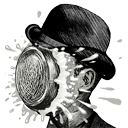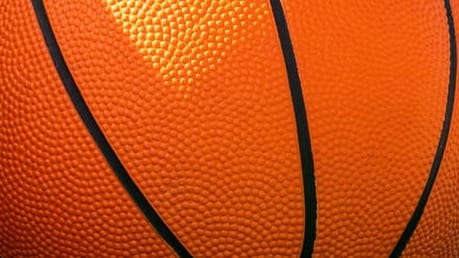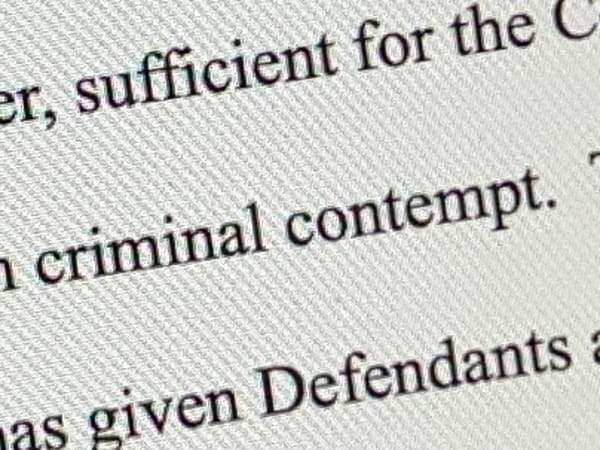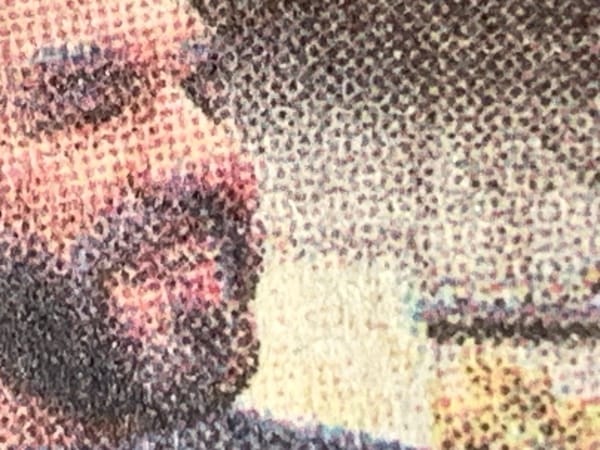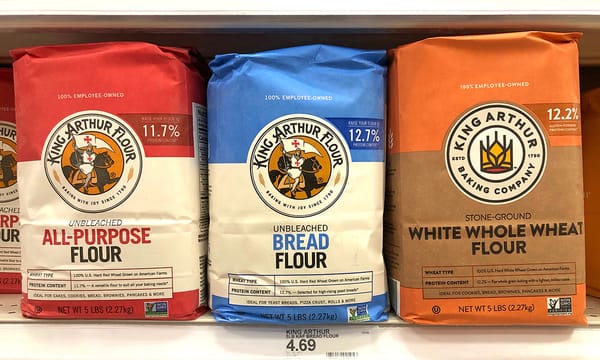Houston achieves liftoff
Indignity Vol. 5, No. 62
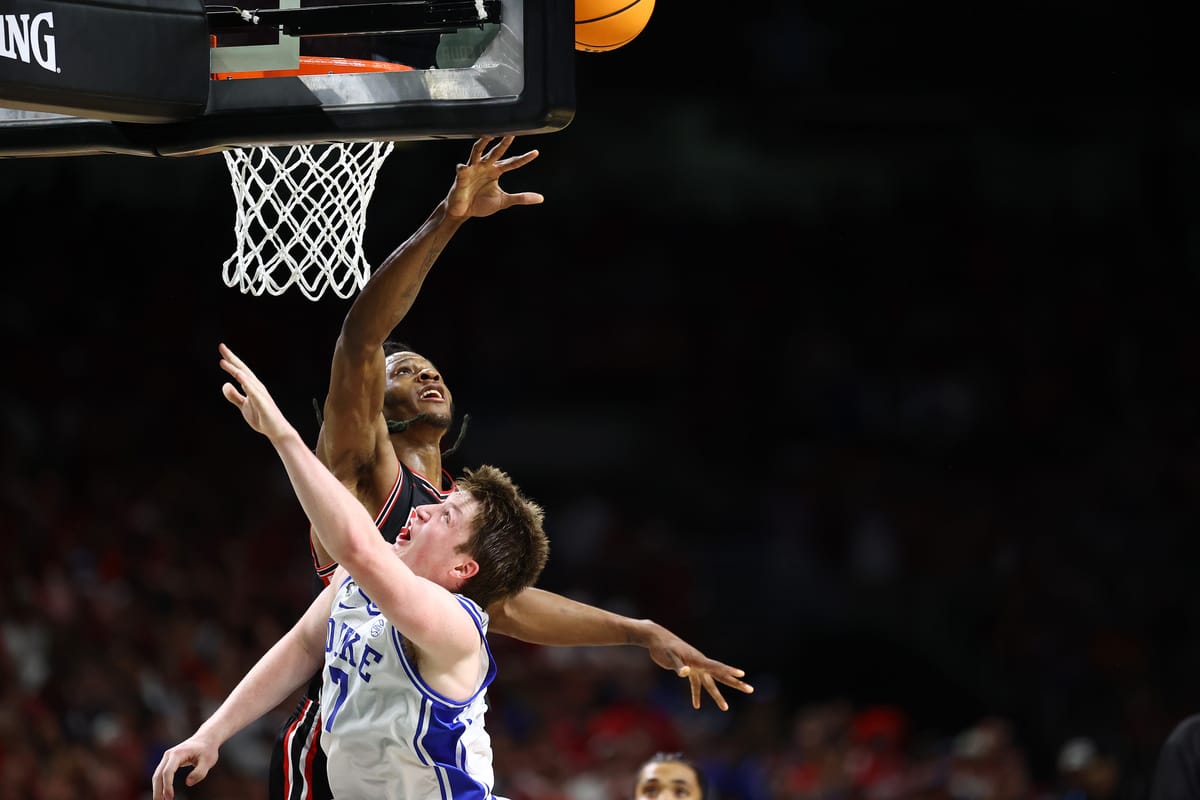
SPORTS DEP'T.
Duke's Advantages Wore Out
I SPENT WEEKEND mornings this past winter watching a fair amount of middle school basketball up close, and certain basic truths about the game get amplified when 13-year-olds are involved. Ball-handling ability is crucial, for instance. Also: in a league where players might be a foot apart in height through the simple vagaries of growth-spurt timing, you genuinely cannot teach size.
The main thing, though, was seeing how much of what looks like metaphysical failure—confusion, loss of confidence, failure of will—is just the team getting tired. The coach of the team I was supporting put a lot of stock in trying to motivate and challenge his players, but he also kept his rotation short or nonexistent, because he didn't trust his bench. Though that mistrust seemed mostly reasonable minute to minute, the result was that down the stretch, the same starting five that could pick apart opponents in the opening minutes would end up sloppy and flat-footed and dispirited. Or sometimes, middle school being middle school, it would be the other team that jumped out to a lead and then wore itself down.
Saturday night, I missed one pivotal part of the University of Houston's comeback against Duke in their men's college basketball semifinal, because I thought the game was over. The Cougars were trailing, as they had been trailing since the opening minutes of the game. Duke had led 59–45 with 8 minutes and 17 seconds to go; since then, the Cougars had been squeezing and hounding Duke, holding them scoreless for more than four and a half minutes, but not doing all that much scoring of their own.
With less than two minutes left, Duke was still ahead by 7 and Houston—trying and missing three-pointers the way desperate teams do when they see time running out on them—still hadn't reached 60 points. Houston was furiously swarming on defense, and Duke looked uncomfortable, but the clock and the scoreboard said the Cougars were running out of options. Almost. After a Houston steal and some back-and-forth fouls and free throws, it was a 5-point game, 66–61, with 1:14 to go.
Duke prepared to inbound the ball, and Houston's Joseph Tugler, who'd just gotten the previous steal, blitzed the pass attempt—blitzed it so aggressively, he accidentally got his hand on the ball before the Duke player released the pass. Technical foul. Duke would get a free throw and possession. Five points would become 6 points, Duke would get another shot before Houston got the ball again, and the clock would keep running.
I went to finish getting ready for bed. Nice try by the Cougars, but it was over. There's a kind of basketball game we always called a dog-chasing-a-car game, where the stronger team gets out in front of the less strong team and just stays there—not running away with the game, merely shrugging off whatever bursts of energy or success the other team might manage. Sometimes, the numbers on the scoreboard suggest the trailing team could be in striking distance, but it's never believable. Even if the dog does catch up with the car, what's it going to do with it?
Both teams were No. 1 seeds and had near-identical records—35–3 for Duke, 34–4 for Houston—but there was no question which one looked more impressive. Duke had Cooper Flagg, the Naismith College Player of the Year: absurdly huge, absurdly quick, so shamelessly talented in his one-season hop from consensus No. 1 high school senior to consensus No. 1 NBA draft pick that his gifts could even nearly transcend his being an overwhelmingly hyped white guy playing for Duke. The rest of the roster was gigantic, smooth-shooting, and defensively intimidating. They averaged 83.7 points per game, allowing their opponents only 62.6. Houston, meanwhile, had scored nearly 10 fewer points per game. They'd made it to the Final Four by crushing their opponents defensively, holding them to 58.5 points per game—including a brutal 15-point first half by Tennessee in the national quarterfinals.
Throughout the first half Saturday and well into the second, the matchup on the court had looked like the matchup on paper. Houston fought for rebounds and played energetic defense, and Duke didn't much care. There were too many of the Blue Devils, and they were too big. The Cougars hurried and missed point-blank shots trying to score on the giant front line. As Flagg drew defenders, Duke's Kon Knueppel swished three-pointers and cut in for layups with the nonchalance of Kevin Durant collecting his NBA Finals MVPs with Golden State, when he kept pouring 30-point games into the holes Stephen Curry opened in the defense.
This was Duke. I'd almost made my peace with how unstoppably good they were, back in the previous round. Then I saw a guy on Auburn who looked like the old Duke center Carlos Boozer, from the most loathsome era of Duke basketball, so I Googled Carlos Boozer and found out that he has twin sons who are both top high school players who have committed to Duke, and that the bigger and better of those twins is named "Cameron," like Cameron Indoor Stadium. And then, as Houston started making Duke sweat a little down the stretch, CBS kept cutting to shots of Mike Krzyzewski up in the stands, still scowling like he'd never retired from coaching the team. It would have been nice if Houston could really have done it, but the technical foul—
I checked back to see if the Cougars had kept it respectable. The game was still going—Houston had the ball—there were 40 seconds left—Duke's lead was...only 6 points? Houston drained a three-pointer to cut the lead in half. Houston called time out with 32 seconds left.
While I wasn't looking, Duke had made the technical free throw and then Tugler had blocked a layup attempt by Knueppel. Houston had needed an improbable string of things to all go right to have any chance, and one of those things after another was snapping into place. Duke tried to inbound and Houston tipped it..stole it...shot a three...missed...and Tugler sailed in and dunked the rebound.
Duke was still leading by one point. There were only 25 seconds left. All Houston could do was foul. If Duke made both free throws of the one-and-one, the Cougars would have to hope for a miracle three-pointer just to tie the game. Duke missed the opening free throw, Houston fought for position on the rebound, and Flagg got called for a foul.
Suddenly, Houston didn't need a miracle. All the Cougars needed was free throws and defense. The dog had sunk its teeth into the fender as Duke was pulling into its own driveway, and now it was shaking the car to pieces. J'Wan Roberts sank both free throws. With 19 seconds left, Houston was ahead, 68–67.
What happened? Amid all the gaudy Duke stats before the game, there had been one startling number circulating about Houston: the Cougar players ran, on average, a 5:19 mile. Their slowest player ran 5:40. They were not just mentally resilient and defensively disciplined and fearless in the clutch—they were using their legs. What looked like a test of metaphoric heart was also a test of cardio. Duke got the ball to Flagg; he worked against his defender and launched a fallaway jumper, and the ball clipped the front rim, coming up short. The best player on the floor had taken a tired shot.

WEATHER REVIEWS

New York City, April 6, 2025
★★ Under an even gray sky, rain came and went. A few petals speckled the pavement under the thickly blooming crown of the pear tree by the corner. The blossoms lightened as the last drizzle left and the sky got whiter and glary. Drab clothes predominated over springtime colors, but people were abroad and active, going in and out of the Park, having no better available Sunday afternoon to do it in. Now and then something like actual sun shone through. Pink magnolias leaned out toward the Museum Mile. A robin sang loudly, unfazed by the gathering dark.

EASY LISTENING DEP'T.
HERE IS TODAY'S Indignity Morning Podcast!
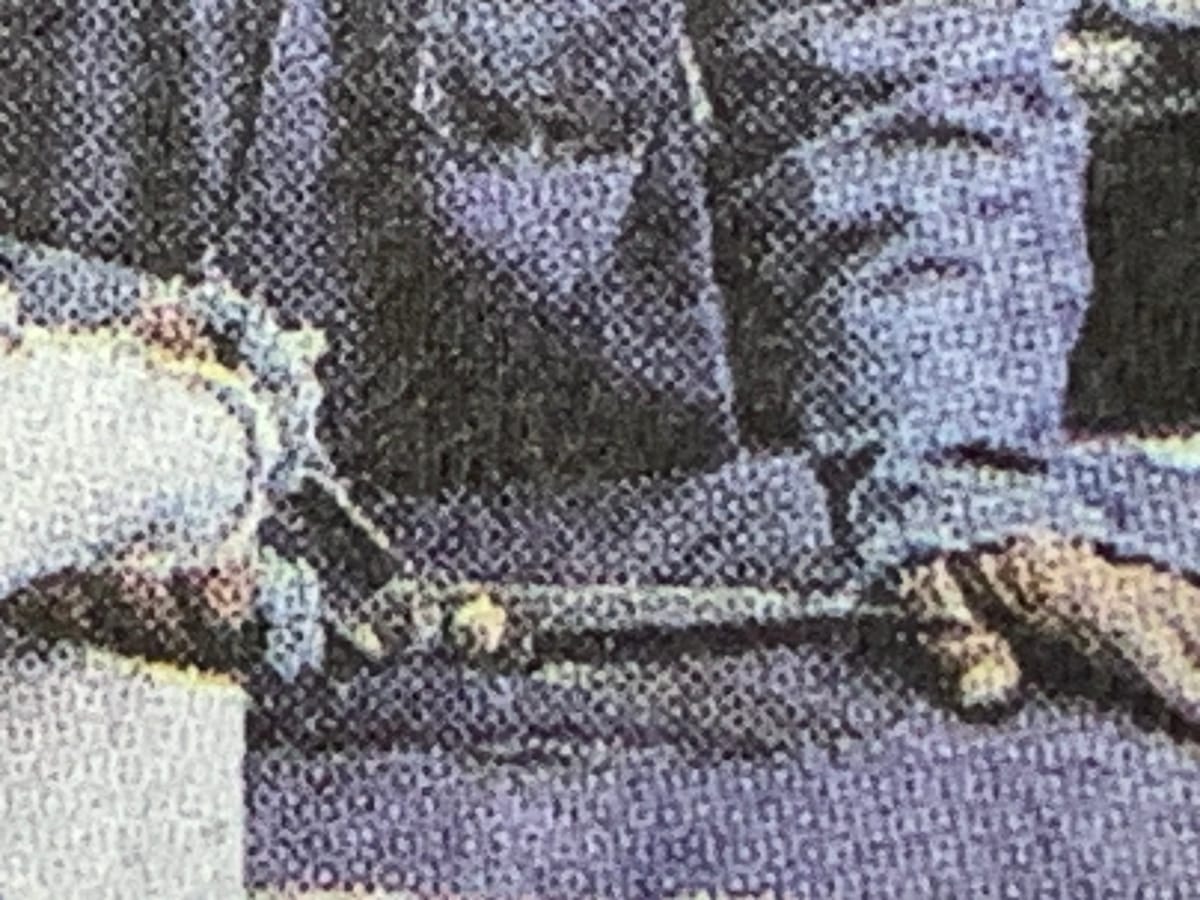
CLICK ON THIS box to find the Indignity Morning Podcast archive.
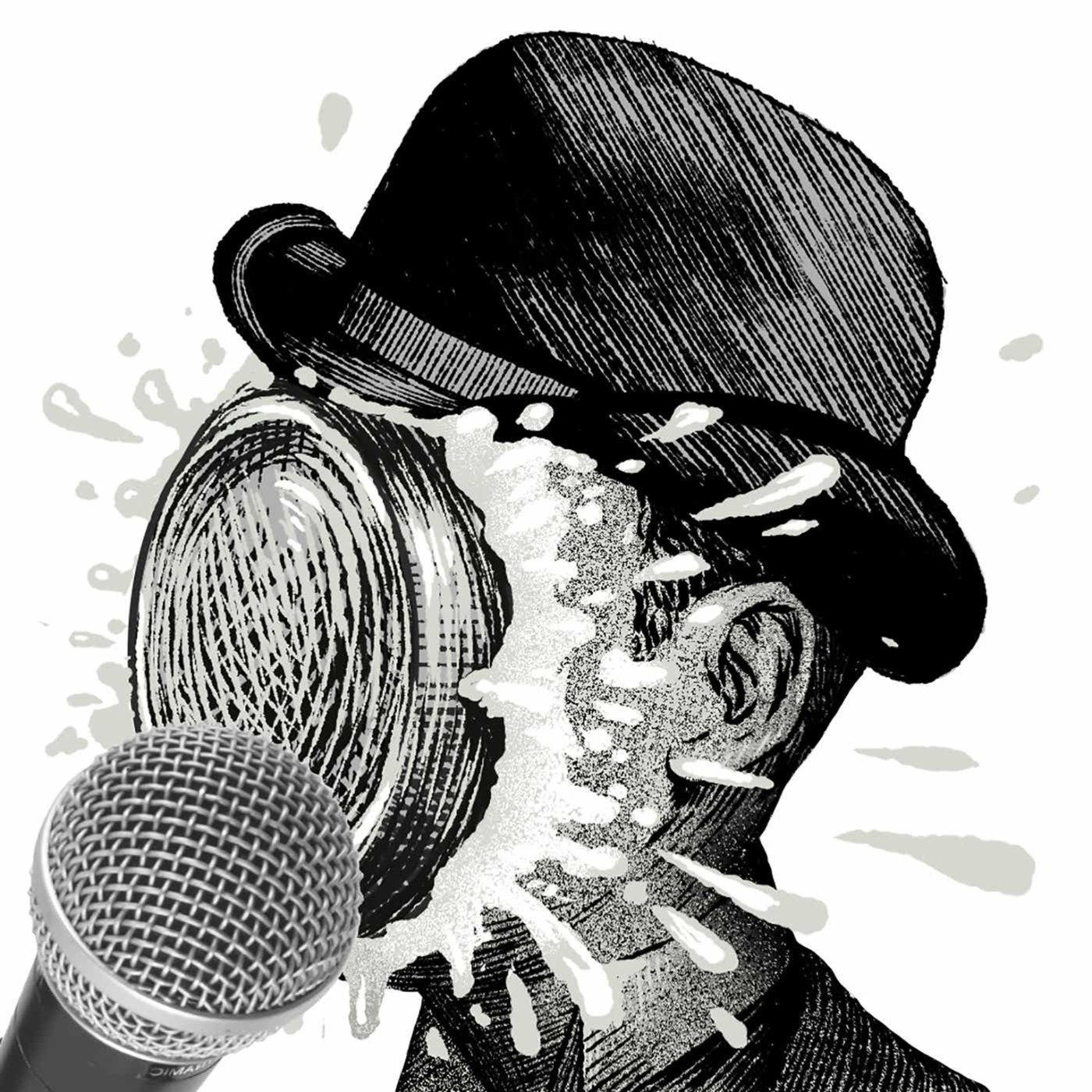

ADVICE DEP'T.
GOT SOMETHING YOU need to justify to yourself, or to the world at large? Other columnists are here to judge you, but The Sophist is here to tell you why you’re right. Direct your questions to The Sophist, at indignity@indignity.net, and get the answers you want.

SANDWICH RECIPES DEP'T.
WE PRESENT INSTRUCTIONS in aid of the assembly of a sandwich selected from Prague Chapter Book Of Recipes, compiled by Marie Paidar and Blanche Kammerer, published in 1922, and available at archive.org for the delectation of all.
CHEESE SANDWICHES, HOT— Grated American or New York cream cheese, bread, butter. Butter thin slices of bread very lightly, sprinkle generously with the cheese; press two slices firmly together, cut in half and toast quickly. Serve at once, with coffee. Or, toast circular pieces of bread, sprinkle with a thick layer of grated cheese, seasoned with salt and cayenne. Place in a shallow pan and set in oven to bake until cheese is melted. Serve at once. MARY JORDAN.
If you decide to prepare and attempt to enjoy a sandwich inspired by this offering, be sure to send a picture to indignity@indignity.net.



